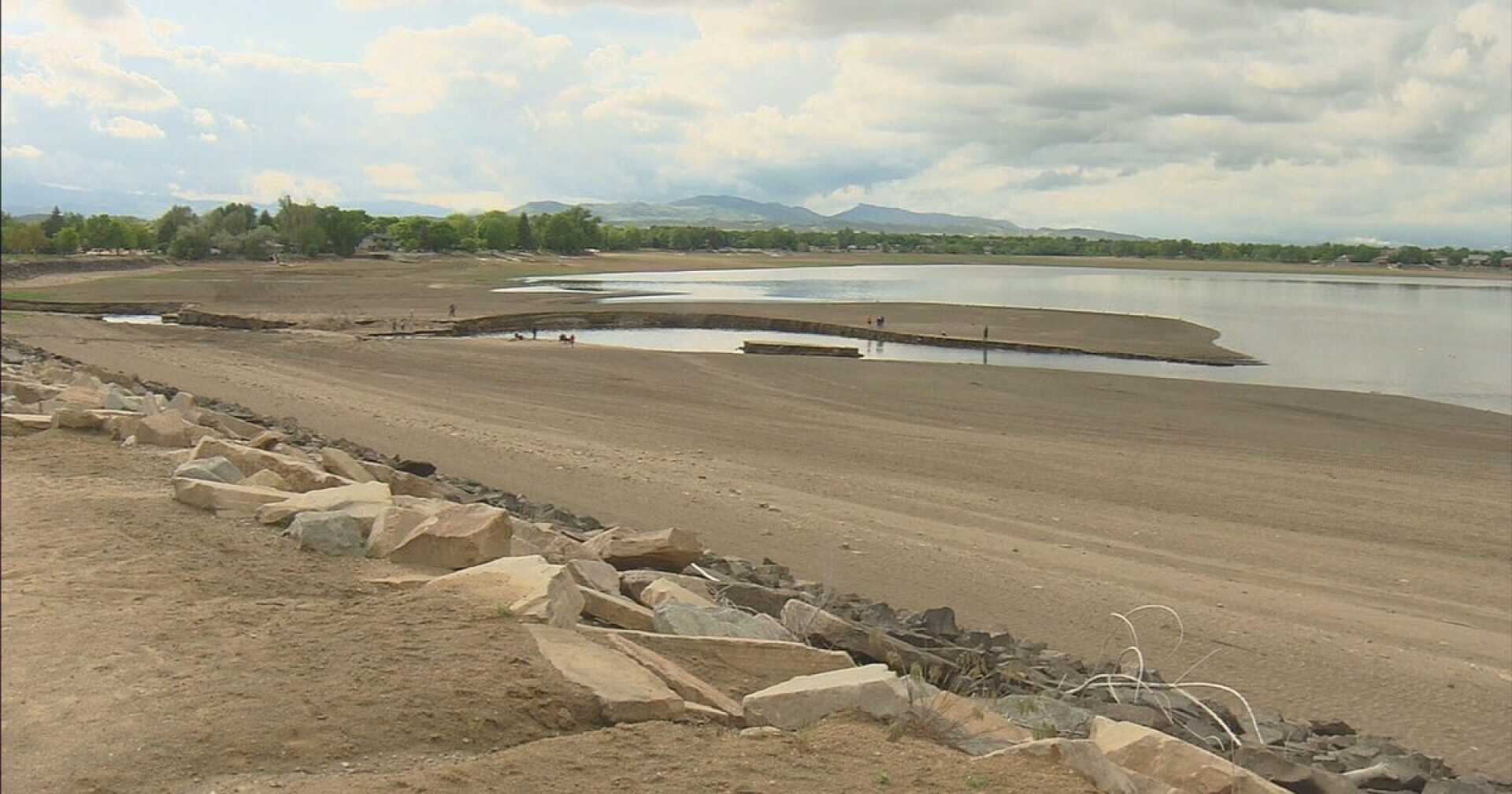News
Lake Loveland Experiences Unusually Low Water Levels Amid Concerns

Loveland, Colorado — Lake Loveland, one of the largest lakes in Northern Colorado, is experiencing significantly low water levels this season, raising concerns among residents and local officials. Typically, during this time of year, the lake would be nearly full.
Recently, many residents noticed the lake’s lowered water levels, which have also led to an alarming number of dead fish along the shores. Harrison Bennett, a local resident who frequently walks his dog by the lake, expressed sadness over the situation. “It is really low for this time of year. Usually by now, it is really full,” he said.
The lake is owned by the Greeley Loveland Irrigation Company, which primarily provides water for agricultural irrigation in Weld County. According to reports, the low levels are due to the lake having a lower priority for accessing snowmelt water from the nearby Rocky Mountains. As a result, the irrigation company is waiting for higher-priority lakes to fill before they can access their water rights.
While representatives from the Greeley Loveland Irrigation Company did not provide a comment for this article, a manager from the company acknowledged that they are following protocol to secure water resources.
Residents expressed curiosity and concern over the dying fish. “I’ve seen a lot of dead fish … It is sad,” Bennett said. He, like many others, is uncertain about when the lake might recover.
Despite the circumstances, some locals have found a silver lining. One man, identified as Jesse, creatively utilized the dry lake bed as a playground for his grandson. They raced remote-controlled trucks on the uneven ground, enjoying the activity despite the lake’s low levels. “We like that the water is down low,” Jesse said. “The only time I have seen it this low is when they were clearing out the sand.”
As the community waits for updates on the lake’s restoration and the impact on local farmers, many residents remain hopeful for positive changes.












